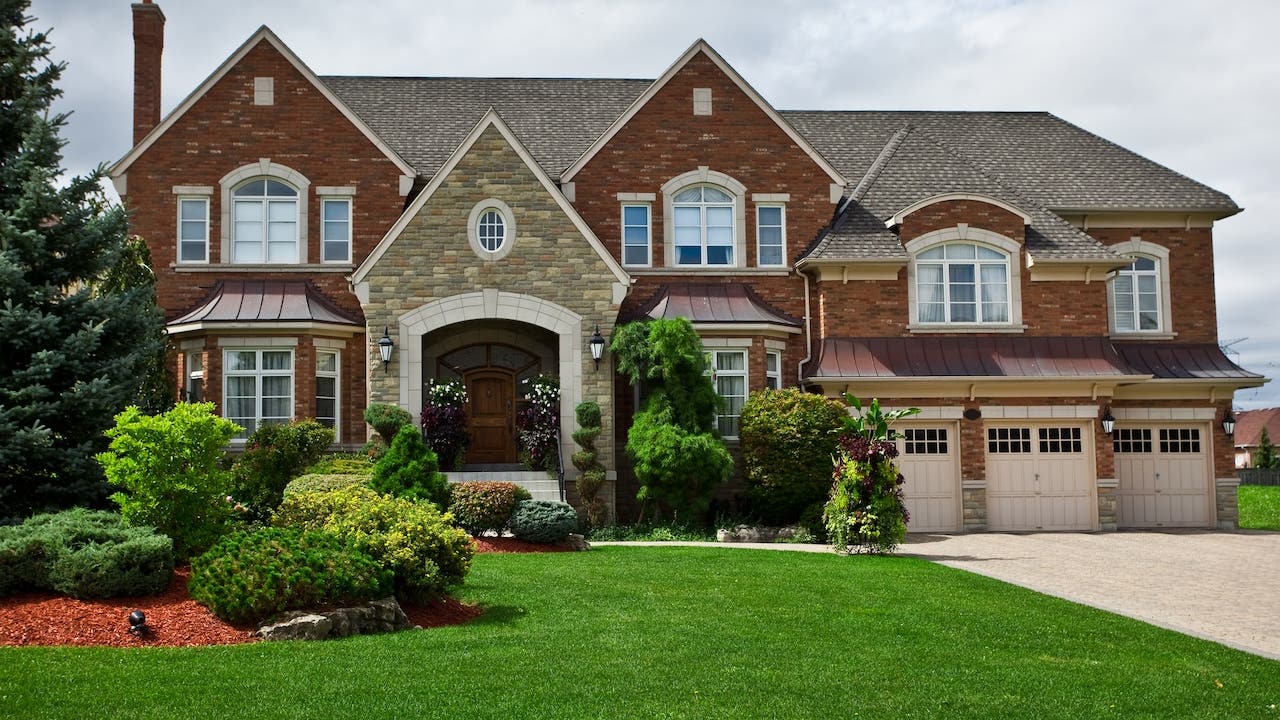What income do I need to afford a $750K house?

The Bankrate promise
At Bankrate we strive to help you make smarter financial decisions. While we adhere to strict , this post may contain references to products from our partners. Here's an explanation for .
Hoping to buy a home in the $750,000 range? That’s almost double the national median sale price of a home, which is $393,500 according to March data from the National Association of Realtors. Being able to afford this higher-end price tag will be determined by several different criteria, including your annual income, the amount of your down payment and the interest rate you secure on your home loan.
Bankrate’s mortgage calculator can help you work out the income needed for a $750K house. Assuming you make the recommended 20 percent down payment on a 30-year loan with a fixed interest rate of 7 percent, your monthly payment for principal and interest on this purchase would be $3,992. We’ll need to factor in additional expenses like property taxes, home insurance premiums and homeowners association fees (if you’re part of an HOA), and those amounts vary depending on your location. So let’s estimate about $4,800 per month, totaling $57,600 annually.
If we assume about about a third of your income is dedicated to housing costs, multiply that $57,600 figure by three to approximate the minimum income you’d need to earn to afford a $750K house: $172,800. (Note that this number does not factor in the upfront funds required for a down payment and closing costs.)
Income to afford a $750K house
Adhering to the 28/36 rule, used by many lenders, is a simple way to determine how much house you can afford. This guideline advises allocating no more than 28 percent of your income toward housing costs, and limiting total debt payments (including housing) to 36 percent of your income.
Here’s how the 28/36 rule works for an income of $172,800. That equates to a monthly income of $14,400, with 28 percent of that amounting to $4,032. So $4,032 is the maximum you should spend on monthly housing costs, including principal, interest, property taxes, insurance premiums and any HOA fees. That’s less than the $4,800 estimated above.
But it’s also essential to account for the 36 percent aspect of the rule. Assess all your other monthly debt obligations — such as car payments, credit card bills and student loans — and add them to your housing cost to make sure the total not surpass 36 percent of your income. Bear in mind, too that these figures do not include other ongoing homeownership expenses like utilities, maintenance and repairs. You want to avoid overstretching your finances.
Location matters
Home prices can vary drastically depending on what location you’re looking to buy in. A budget of $750,000 will likely buy a large home on lots of land in most parts of the country, but it will get you much less in high-priced markets like New York City, Los Angeles, the San Francisco Bay Area and Washington, D.C. Hot locations with median prices under $750K include Austin, Denver, Phoenix, Miami and Atlanta.
What factors determine how much you can afford?
When shopping for a house, it’s vital to look beyond just your annual income and the price of the home. Several factors significantly impact how much house you can afford:
- Loan type: While it’s often advised to aim for a 20 percent down payment, that amount isn’t mandatory. Many loans allow for less than a 20 percent down payment if you qualify, which reduces upfront costs,.
- Down payment: The initial amount you invest in the home purchase directly affects your monthly loan expenses. A larger down payment means borrowing less, leading to reduced interest payments over time. Putting down at least 20 percent also means you won’t have to pay for private mortgage insurance.
- Credit score: Your credit score plays a significant role in determining the type of mortgage loan you qualify for and the interest rate you receive. A higher credit score enhances the likelihood of securing a lower interest rate and more favorable loan terms.
- Debt-to-Income and loan-to-value ratios: Mortgage lenders carefully scrutinize your LTV (comparing the loan amount to the home’s value) and your DTI (comparing your debt obligations to the amount of income you bring in). “Typically, if you have a higher LTV ratio you might be considered higher risk,” says Emanuel Santa-Donato, a senior vice president with Tomo. “This could impact the interest rate or the cost of private mortgage insurance.”
- Closing costs: Homebuyers must pay an array of closing costs, which can include fees for loan origination, home appraisal and inspection, a credit report and more. “These costs are essential components of the closing process and are typically fixed irrespective of the property’s value,” says Matt Dunbar, senior vice president of the Southeast region for Churchill Mortgage. “But some closing costs can vary in price based on the loan amount or sales price.”
- Financial assistance: There are many state and local programs offering grants and other types of down payment assistance to buyers who qualify. Your high salary may make you ineligible for these, but it’s worth checking, especially if you’re a first-time homebuyer.
-
Ongoing homeownership expenses: “There’s no universal rule on how much a property will cost you each month, so it’s important to look at the historic costs of maintaining a specific home,” says Santa-Donato. “This includes things like the boiler, the roof and the added costs that might be associated with specific property features, like an in-ground pool.”
Stay the course until you actually close
A local real estate agent who is familiar with your specific area can help you navigate this entire process more successfully. Let your agent’s expertise guide you, and remember to avoid making significant purchases or life changes that could affect your credit score while awaiting your closing date. By refraining from actions that could prompt lenders to reassess your financial status at this stage, you reduce the risk of complications. Exercise caution and refrain from making large purchases (like a car), applying for new credit cards or changing jobs (if possible), until after the sale is completely finalized.
FAQs
Related Articles



